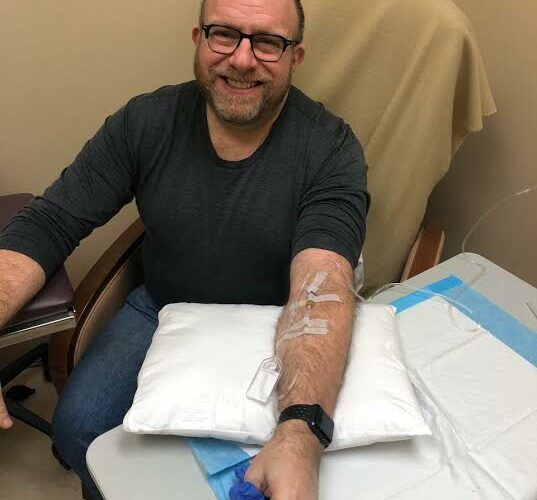SAN DIEGO — The scientific data was virtually unreadable, the explanations often too complex for the layman or woman to understand.
But there was a bottom line of this morning’s blockbuster presentation from Biogen on its experimental Alzheimer’s drug, aducanumab, at the Clinical Trials for Alzheimer’s Disease (CTAD) conference. Patients with mild cognitive impairment (MCI) or early Alzheimer’s who were on a larger dose of aducanumab for a longer amount of time showed a statistically significant slowing of the disease.
Stephen Salloway, Director of Neurology and of the Memory and Aging Program at Butler Hospital in Providence, R.I., called the news positive and that “dose matters with this drug.”
“Continued exposure to high doses benefited patients with early Alzheimer’s disease,” Salloway said.
Dr. Sharon Cohen, Medical Director and Principal Investigator at the Toronto Memory Program, passionately defended aducanumab against skeptics who continue to believe that Biogen has not yet provided enough data to win regulatory approval for the drug.
As a clinician who works with patients, Cohen said, she found the presentation “exhilarating” because of what the study found in terms of people’s ability to continue the activities of daily living, and maintain independence for longer, with the disease.
“People still being able to work, shop, travel,” Cohen said. “This matters a lot more to our patients than a score they get on a memory test.”
Dr. James Kupiec, Chief Medical Officer of ProMIS Neurosciences, said the Biogen presentation was “clearly positive.”
“This is not the best drug for Alzheimer’s that will ever be approved,” he said. “It will be the first drug that is approved.”
Others remained more skeptical, saying that it is likely that the FDA will require additional data from Biogen before giving full approval for the marketing of aducanumab.
Jeff Borghoff, a participant on the past trial that was cancelled, said the presentation helped to bring a little bit of clarity to the drug’s revival, but still left him with many more questions.
“I watched the live stream today broadcast from CTAD, trying my best to make sense of the very technical and scientific presentation,” Borghoff told Being Patient. “Tethering the initial cancellation with the revival make more sense now. My hope is that I will re-enter the trial with the more successful EMERGE P4 protocol at the higher dosage sooner than later, as timing is critical.”
Still, Salloway called the results a “biological foothold that we can build upon” in future research.
“This represents the first treatment that targets core pathology and opens up an era of precision medicine in Alzheimer’s disease,” Salloway said. “Overall I think this is a milestone achievement for our field.”





